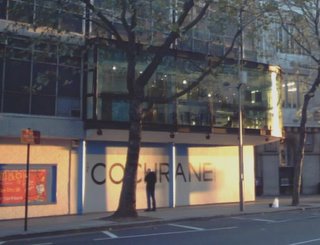Eminent domain in the era of unbridled capitalism

Trump got the state Casino Reinvestment Development Authority to begin condemnation proceedings against all three, justifying the move as an attempt to add hotel rooms to support the new Atlantic City Convention Center. Clare Sabatini said CRDA representatives told her she would be handcuffed and taken out of her restaurant if she didn't sell.
'This is America!' says Vincent Sabatini, 75, recalling the battle during a break from his kitchen on a recent Wednesday night. 'How can they put me out of business? How could they just take my deed from me?'
- Restaurant Owners to Sell to Trump," by John Curran, Associated Press Writer
The year is 1814. The British Post Office and its cronies are attempting the first case of eminent domain ever to be used on a massive scale in an urban intervention.
Under examination is Joseph Hillman, an ironmonger, of Foster Lane. The examining judge, William Bankes, has heard evidence that the site under discussion, St. Martin's-le-Grand, is populated by some dozen "houses of ill repute". He's been listening to testimony that the location is a pernicious den of thieves, a menace to law-abiding society.
Hillman replies that St Martin's parish is “valuable to the inhabitants.” He talks of silversmiths living near Goldsmith Hall, of old families, of local traditions. He adds that the inhabitants are old and will be greatly inconvenienced by the forced removal. “Do you think the inhabitants of St. Martin’s-le-Grand are older inhabitants, more stationary, than in general the inhabitants in other parts of the city?" asks Bankes. Hillman replies, "There are not people of longer standing in any neighburhood, than in the neighbourhood of St. Martin’s-le-Grand.” Are there any brothels there? asks Bankes. Hillman replies that there are two.
Eminent domain is new law, running in direct conflict with the law of privacy and the fundamental protection of private houses. As its uses expand, so do its dangers.

 Harsh winters are rare on this island, warmed as it is by Atlantic currents. So blizzards always take Britain by surprise. In 1814, people were dying on the roads because of hitherto unknown levels of snow. Postboys, who were regularly threatened with a month's hard labour in prison if they were caught loitering in their deliveries, froze to death on their horses.
Harsh winters are rare on this island, warmed as it is by Atlantic currents. So blizzards always take Britain by surprise. In 1814, people were dying on the roads because of hitherto unknown levels of snow. Postboys, who were regularly threatened with a month's hard labour in prison if they were caught loitering in their deliveries, froze to death on their horses. 


 kudos to the newsletter of all things puppet online,
kudos to the newsletter of all things puppet online, 













